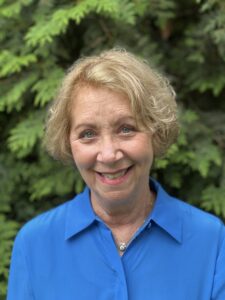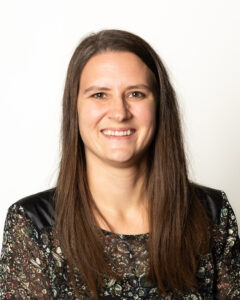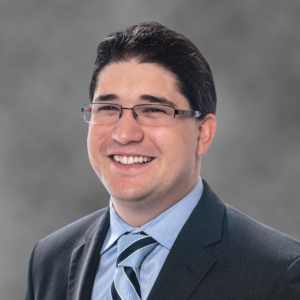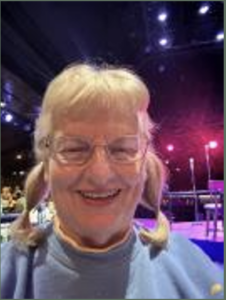By Andrew Adler
Community Editor
The Blanche B. Ottenheimer Award, which is the highest honor the Jewish Community of Louisville can give, is presented annually to a leader (or leaders) who have made a real difference – improving the quality of life in Louisville, in Kentucky and beyond. Ottenheimer was a Jewish Louisville community activist. In addition to serving as president of the National Council of Jewish Women,
Louisville Section, she worked for passage of the city’s Model Registration Law, which curbed corruption and led to cleaner elections.
It was a morning in December 1993 that Marcia Roth will never forget.
News outlets were reporting the grimmest of stories: Mary Byron – a 21-year-old Louisvillian who’d just finished working a shift at a Mall St. Matthews beauty salon – was shot to death as she sat in her car in the mall’s parking lot. The gunman was her ex-boyfriend, who unbeknownst to her had bonded out of jail on a charge of raping her the day before.
Roth, who at the time was the founding director of the Jefferson County office devoted to advocating on behalf of area women, was understandably appalled. But she wasn’t all that surprised – domestic violence had long been a terrifying reality, not only in greater Louisville but throughout the nation.
She was determined to end the practice of releasing domestic violence perpetrators without notifying their victims. So Roth teamed up with two local technical entrepreneurs to create VINE – Victim Notification and Information Everyday — which went live on the one- year anniversary of Byron’s murder, and which became the model for similar initiatives across the U.S. Soon afterward, Roth founded the Mary Byron Project, a foundation which funds what it calls “innovations and strategies to end domestic violence.” She was its executive director until retiring in 2019.
Battling domestic violence may be Roth’s most visible cause, but it is hardly her only imperative. For decades, she and her husband Bruce Roth (they met as freshmen while attending Northwestern University; he now serves as treasurer of the Jewish Heritage Fund) have been key participants in Louisville Jewish life. Their philanthropic generosity is reflected the Roth Family Education Center at the Trager Family JCC, and in the family’s collective gift to fund the Wall of Honor in the main lobby.
Marcia Roth has been involved with a broad array of local Jewish organizations. She did a stint as president of the Jewish Federation of Louisville and has served as chair of the Jewish Community Relations Council and the and Young Women’s Division of the United Jewish Campaign.
She’s also a past president of the National Council of Jewish Women, Louisville Section, an experience which gave her organizational skills that proved invaluable later in life. It was a far cry from growing up in the small upstate New York town of Herkimer, where her father ran a furniture store and the number of Jews could charitably be described as modest.
That didn’t prevent her mother and father from imparting a foundational sense of Jewish identity.
“”I was brought up in Herkimer by parents and my grandmother who lived Jewishly — we celebrated all the holidays,” Roth recalled. Indeed, “in terms of Tikkun Olam, that was basically where my Jewishness came from – to speak up for people who can’t speak for themselves. Maybe you can’t solve the problem, but don’t end up being part of the problem… I became the one who, if somebody was making fun of somebody, stepped in and said, ‘Don’t do that.’”
She and Bruce got married while they were still undergraduates, eventually moving to Louisville in 1970 so he could go to work for his father’s accounting firm.
It wasn’t long after they arrived that Minx Auerbach, who was her principal mentor, made what turned out to be a defining declaration: “’I’ve joined the National Council of Jewish Women for you,’” Marcia Roth recalled, “ ‘and you will be active.’”
“It was an excellent match for me,” Roth acknowledges, “because NCJW taught me why we had to be involved in the community. We were always going to be givers and members of the Federation, but I didn’t really understand the Jewish connection to a city the size of Louisville, which for me, was huge. And I learned about how to operate with coalitions, and what the beauty of community work was by involving people who shared the same purpose you did, but who did not necessarily come from the same background. It also helped me develop a strong interest in politics.”
Roth forged a potent alliance with David Armstrong, Jefferson County’s Judge-Executive, who subsequently was elected Louisville mayor. It was Armstrong who encouraged Roth to establish the unprecedented Office for Women, insisting that she be its director.
“I went to his office downtown in the courthouse and said, ‘What do you see as the agenda of the Office for Women?’ And he said, ‘if I knew that I wouldn’t have to hire you.’ Good point, I thought. So I went home and wrote up what I thought the mission of the Office for Women should be. I made it very broad: that the mission was going to be to improve the status of women in Jefferson County.”
Roth was off and running. “I was very lucky because with Bruce, I didn’t need to work to put food on the table,” she says. “So my volunteer work was incredibly satisfying for me intellectually and community-spirit-wise, and Jewish-wise.”
Her legacy regarding the Mary Byron Project became especially resonant in February 2022, when gunman Quintez Brown attempted to assassinate then-mayoral-candidate Craig Greenberg. “I called Craig and said, ‘You must register to be notified and find out when he gets out of jail,’” Roth recalls. “He said, ‘Don’t worry – they’ll call me.’ I said, “No, no, no – he could be released at 2 in the morning, and nobody’s going to call you at 2 a.m. You need to register to be notified – and he did. And so did I, so I would know when that guy was released.
Roth acknowledges the encompassing scope of her JCL honor. “Blanche Ottenheimer was a woman way ahead of her time,” she says. “I think the Ottenheimer Award is more than just for the Jewish community, when you read the criteria (“… improving the quality of life in Louisville, in Kentucky and beyond…”), I certainly have a foot in both camps. I’ve been lucky enough to be able to do service work in the Jewish and general community.
“We are living in a world I never thought we’d be living in,” Roth says, citing the sharp rise of antisemitism nationwide. There’s a collective responsibility, she emphasizes, in recognizing that “the JCRC is so important and the Jewish community’s presence in Louisville is so important.” It’s vital, she believes, to be actively fostering coalitions of people who understand that antisemitism is a scourge for everybody. But if you’re not out in the community, then they don’t necessarily understand that.”
This year’s Ronald & Marie Abrams Volunteer of the Year Award, whose extant namesakes exemplify community service, goes to Jon Klein.
Jon Klein grew up in New Orleans before earning his M.D. at the University of Texas and a Ph.D.in microbiology and immunology from U of L, joining the medical school in 1985 as a specialist in kidney diseases. Many Louisvillians – Jewish and otherwise – got to know him from his weekly reports as principal medical advisor to then-mayor Greg Fischer during the height of the Covid-19 pandemic. “I still get calls from people when they get sick asking about what they should do about isolating themselves and what the latest recommendations are.”
A longtime physician and researcher at the University of Louisville School of Medicine who recently took on a new role as the university’s Interim Executive Vice President for Research of Innovation, Klein is a firm believer in the power of objective evidence.
“There are a number of times in JCL meetings where I’ll start a comment by saying, ‘Look, I’m a scientist, and that means I’m data driven.’ So when we go to make decisions, I really insist on data, particularly when we look at things like the (2022 Brandeis University) demographic study. Before that, people would make very general comments: ‘It’s a very old community and it’s aging out and we don’t have any young people and you know, there are only about 6,000or 7,000 of us.’”
“That’s one reason I found the demographic study so exciting,” Klein says. “Because it turns out there are a lot more of us than we realized in this metro area, and it’s younger than a lot of people assumed.” Additionally, the study “taught us a lot about pockets of Jewish poverty, and the data that came out of that study is a really important thing.”
Still, Klein acknowledges that numbers alone can’t tell the entire story about Louisville’s Jewish community, “You can’t work solely from that perspective,” he says, mentioning his ongoing coordination of the 502.0 committee and “think tanks” exploring what’s in store for the next generation of Jewish Louisvillians. “You still have to have a heart.”
What lies ahead? “Without giving away too much of what our conclusions are,” Klein says, “it sounds like younger Jews are going to be engaged if we segment the offerings that we have in the community — which is to say, in a very simplistic way, that one size no longer fits all.”
Indeed, “We’re going to need other pathways for individuals who identify as being in the Jewish people, but who are not interested in religion,” Klein emphasizes. “We do not have the luxury of leaving one Jewish young person behind or for that matter, any Jew behind.”
The Julie Linker Community Relations Young Leadership Award is named for a Jewish leader who passed away unexpectedly in 1984, depriving the community of a friend. She chaired the Young Women’s Division of the United Jewish Campaign and was vice-chair of the Major Gifts Division, of the Women’s Division, and was vice-president of the Women’s Cabinet of the Federation. This year’s winner is Ben Vaughan.
Ben Vaughan was volunteering on behalf of the Jewish Community Relations Council when the call came. Organizers of the nascent Safe Louisville initiative – recognizing that a fellow with two electrical engineering degrees from U of L’s Speed Scientific School and a proven professional track record could be useful – tapped him to join Bill Altman in moving the project ahead.
“I’ve been working through that and getting all getting all the security systems updated,” Vaughan says, “working across the different institutions we have” — ranging from various synagogues to the Trager Family JCC — “just pushing the whole thing forward.”
Momentum is on his side. “It’s a rolling ball,” he says, “and once you start rolling it it’s easy to keep it rolling.” Vaughan’s JCL consulting involves multiple collaborations – he cites Stuart Lowrey, JCL’s Regional Security Advisor, as an especially expert colleague.
Vaughan’s engineering background has proven an ideal match to his work on behalf of Safe Louisville. He mentioned the myriad “technical aspects related to cameras on the network and all the computer stuff,” explaining that “I definitely have a background that lends itself” to those challenges.
Jewishly, Vaughan is something of a secularist. “It’s more of a cultural identity than a religious and spiritual one,” he says. “I had a religious identity growing up in school. Then, after college, I just went in a different direction.”
Along the way, Vaughan nurtured a strong belief in social justice, even when political success proved frustratingly elusive. “I’ve dealt a lot with interfaith (issues) in different communities and spent a couple of years working with the voter-rights restoration coalition.
Frankfort has been less than cooperative. “It’s been a fight that’s been going on for decades,” he says, “and is not wanting to get solved anytime soon.
Meanwhile, Vaughan can take satisfaction in being tapped for the Linker Award. “There’s always the recognition that you’ve done well,” he acknowledges. Still, it’s the work, not the validation, that matters most to him. “I’ve never been a big rewards person.”
The Arthur S. Kling Award honors the memory of a prominent Jewish Louisville leader, who served as president of the YMHA. He was instrumental in establishing the original JCC on Dutchmans Lane and founding the Bureau of Jewish Education and the Conference of Jewish Organizations, which ran the United Jewish Campaign. This year the award — which recognizes outstanding performances by JCL staff — goes to Trager Family JCC Early Learning Center Director Jessica Bush.
Anyone seeking a prime example of extraordinary growth need look no further than the Early Learning Center at the Trager Family JCC. And nobody knows that better than ELC’s director, Jessica Bush.
“Over the last two years since we moved in here, we went from a school of 110 children and 25 teachers to 165 children and a staff of 40,” Bush says. “We’re maxed out – we’re turning people away.”
Not a bad view for a Paducah native who came to Louisville in 2007 to attend U of L (majoring in French), who then worked in retail, did a stint as a bank teller and as a political campaign worker for Alison Lundergan Grimes before landing at the old JCC in 2016 as a summer camp counselor.
“By the end of that summer I was in love,” she says. “In my first year I was a pre-kindergarten assistant teacher with Miss Jeanette, who’s retiring this year and who taught me everything I know. The following year I became a lead teacher,” and the next year — having earned an associate degree in Child Development – the ELC’s assistant director.
Now, two years after the Trager Family JCC opened its doors, Bush presides over an ELC that serves children from six-weeks to four years old. An ever-increasing waiting list for the youngest of these reflects the relative scarcity of places for babies and toddlers, but it also testifies to the success of ELC’s educational mission.
“Jessica has led the Early Learning Center program to unprecedented growth and success,” says Thomas Wissinger, Vice President and COO of the Trager Family JCC. “It is her passion for children and age-appropriate learning that created not just a successful program, but a community of families that now have life-long connections with each other, the Trager Family JCC and to the Jewish community.”
Bush has a personal stake in that success: Her two children, son jack (age 4) and daughter Millie (2 ½) are ELC regulars. “Before my children were even born, I knew who their teachers would be,” she says with a broad smile. “They think they’re in charge of the school.” One day, after Jack had gotten into an argument with his teacher and was telling Mom all about it, “I said, ‘Well, inside your classroom Callie is the boss.’ He said, ‘No, Mom, you are the boss.’”
Mama Bush quickly squelched that line of attack: “I am Callie’s boss,” she told her son. “Callie is your boss.”
At some future juncture the ELC might have the means to expand its physical footprint. Meanwhile, however, Bush is justifiably proud of the center, mentioning its access to the Yarmuth Family Aquatics Center — and especially, its small teacher-to-student ratio (three teachers in each room instead of the more typical two). She’s quick to emphasize the collaborative imperative of the ELC.
“I want to make sure everybody knows that it’s not me that’s really the key to the success of the ELC — it’s the teachers,” she says. “I’ve put a good team together, but they’re the ones on the ground doing all the work, the ones that parents create relationships with, and who keep the families coming back.”
The Joseph J. Kaplan Young Leadership Award is named for a leader in Jewish education and president of the Young Men’s Hebrew Association (YMHA) – the predecessor of the Jewish Community Center. Kaplan encouraged people to remember Jewish Louisville in their wills. The Award was established during his lifetime. This year’s winner is Becky Admony.
As a supervising ICU nurse at Audubon Hospital Brownsboro, Becky Admony knows a lot about leadership – she lives it every day of her working life. Her Jewish identity, forged while growing up on Israel’s West Bank, is no less committed.
“I grew up in a house where my parents had moved from the United States to Israel, because they were always scared that Judaism would be forgotten by their kids,” she says. Today, “I feel even more obligated to continue the Jewish way and spread the Jewish word. I hear my parents’ words in my ears.”
Perhaps inevitably, October 7 and antisemitism’s subsequent rise in America has spurred Admony to an even greater sense of mission. “We are in very difficult times right now,” she acknowledges, “but people are being drawn back even more to the Jewish community because of what’s going on in America and around the world.”
Married to an Israeli-born husband and raising four children, Admony has a decidedly personal stake in fostering Jewish Louisville. Her background gives her valuable context when she presents her viewpoint. “A lot of young Jewish kids don’t study the history of Israel the way I did when I was a child in Israel,” she says. “They need answers when they go to university, and when other students stand up against them.”
The Lewis W. Cole Memorial Young Leadership Award is named for an organizer of the Conference of Jewish Organizations, the predecessor to the Federation. A committed Annual Campaign volunteer, Cole devoted his life to Jewish Louisville. This year’s winner is Greg Moore.
Growing up in Middletown, Greg Moore was what you might call a typical Jewish kid. He attended Eliahu Academy, did summer camp at the old JCC and became active in BBYO. But after his mother died when he was 22, he experienced what he now calls “a falling out with Judaism.”
Moore had recently graduated from Indiana University in Bloomington with a B.A. in Accounting — a degree that helped propel him into his present career as a Louisville-based financial planner. Then came a watershed event: the October 2018 mass shooting at Pittsburgh’s Tree of Life Synagogue that killed 11 people and wounded six others.
“I had a kind of inward reflection moment and decided to reconnect to the Jewish community,” he recalls. “I started going to services at K.I.,” where fellow congregant Eric Goodman – then the Chief Investment Officer at Aegon – suggested that Moore join JCL’s Investment Committee, which Goodman chaired. Two years later Moore succeeded him as chairman.
That willingness to step up has helped define him ever since. “I think part of it is recognizing opportunities and not saying ‘no’ — and not being afraid to say ‘yes,’” he believes. “The community helped raise me, so it’s me being able to give back with my specific skill set. I’m happy to contribute in that way, and to help make sure the (Trager Family) JCC stays well-funded in perpetuity.”
This year’s Elsie P. Judah Memorial Award for service to seniors goes to Sandra Cherry.
Sandra Cherry, a former math teacher, has taught in the Veritas program at Bellarmine University, and has connected many seniors to programming at the Trager Family JCC.
Additional honorees for 2024 are:
The Joseph Fink BBYO Community Service Scholarship
Nicole Scaiewicz
The Tony Levitan Award
Maraya Goldstein & Leah Schuhmann
The Stacy Marks Nisenbaum Award
Noa Yussman, Natalie Scaiewicz, & Ryan Shaps
The Ellen Faye Garmon Award
Rachel Berdichevsky & Sarah Rothballer
The Federation and the Trager Family JCC will hold its 2024 Annual Meeting on Tuesday, June 25 at the Trager Family JCC’s Shapira Foundation Auditorium. Join the Jewish Federation and the Trager Family JCC as we elect our officers and new board members, as well as recognize and celebrate our award winners. The evening begins with cocktails at 5:30 p.m., followed by the meeting and awards ceremony at 6 p.m. RSVP to Adam Cohen at 502-238-2722 or email annualmeeting@jewishlouisville.org.










